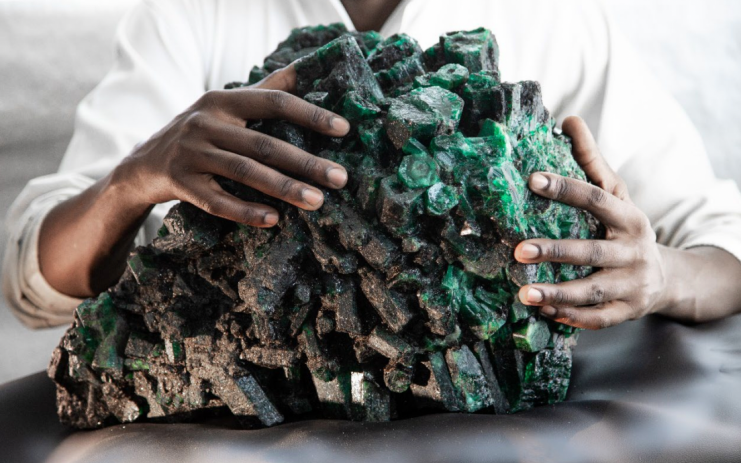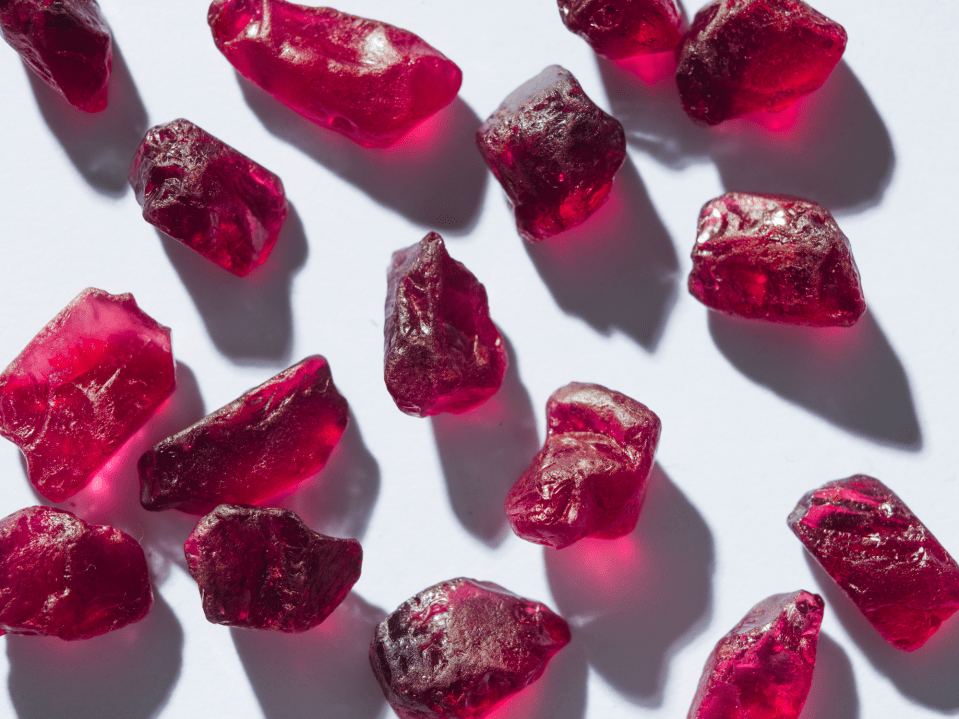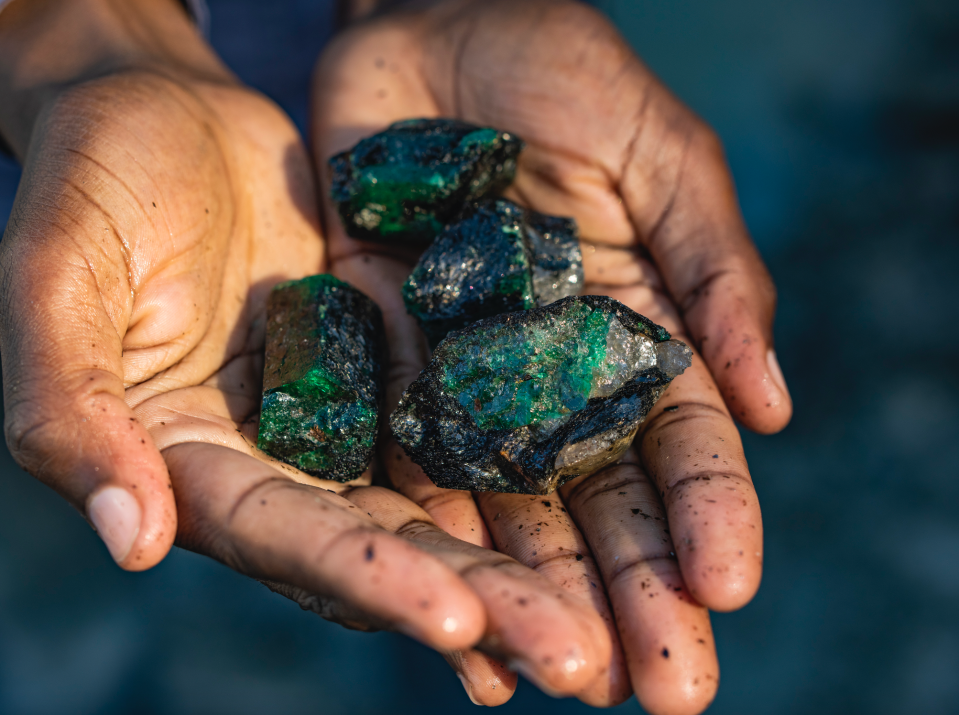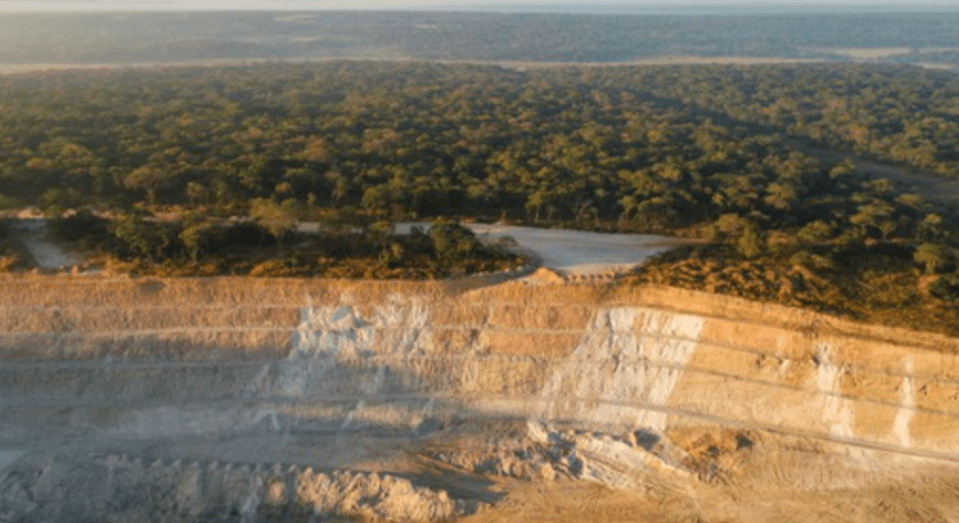Precious gems are a ‘recession resistant’ market, reveals mining boss

Gemstone markets should be “recession resistant,” despite the looming downturn in the global economy, predicted the chief executive of a leading supplier of emeralds and rubies.
Sean Gilbertson, the boss of London-listed miner Gemfields, told City A.M. he was optimistic about the company’s performance amid challenging economic headwinds.
He explained the company’s auctions would continue to attract interest, as they were chiefly driven by high-net worth buyers looking for items of sentimental value.
Gilbertson said: “There is something to be said for people having a proclivity for an object of value, that is directly with them and very personal. It is not going to be blown up with their pension in the event some trader hits the wrong button.”
While Gilbertson refused to describe any market as “recession proof” he considered gemstones to be “resistant” to inflation and the worsening cost of living crisis.
For the year to date, Gemfields has generated $181.2m across three auctions for both rubies and emeralds, with another auction currently underway and expected to conclude later this month.
The latest bidding process includes the mammoth 187,775 carat emerald Kafubu Cluster – made up nearly entirely of emeralds, discovered by Gemfields almost two years ago.
Bids for emeralds chiefly come from Indian companies and investment trusts, while high-worth bidders in Thailand are the most interested in the company’s rubies.

Gemfields: Auctions are a ‘major win’ for Africa
Gemfields operates in Zambia and Mozambique, extracting and cleaning gemstones before they are shipped overseas for polishing and cutting.
They are then later sold at one of the four to seven auctions the company hosts for international buyers every year.
Gilbertson, who is South African, revealed that the company aims for 100 per cent of the money to go back into both countries.
He said local mining companies are allowed to issue invoices to overseas bidders to ensure the “full repatriation of the international value.”
The mining boss wanted the proceeds of his business to go directly into taxation, and boosting the performance of domestic companies in the developing economies.
This would guarantee that Gemfields auctions for precious gemstones were a “major win” for Africa.
He said: “It has irked me for decades how Africa’s resources, particularly gemstones have just evaporated from the continent without suitable value coming back into countries.”

In Zambia, Gemfields owns 75 per cent of the Kagem emerald mine, with the Government holding the remaining stake.
In the case of its ruby operations at the Montepuez mine in Mozambique, Gemfields also has a 75 per cent while Mwiriti Limitada, a local Mozambican company, takes up the rest.
He revealed Gemfields has managed to boost the value of extracted gemstones 15-fold from just a four-fold increase in production at the Kagem emerald mine, one of its key sites, since it took over the site in 2008.
This has been achieved through its lucrative auctions where as many as 50 companies compete with each other – with no established price for the gemstones at its four to seven auctions every year.
He highlighted that gemstones benefitted from a vast variation of two million times in value when it came to price per gram for precious gemstones from poorest to most expensive values.
This is in contrast to other luxury goods such as Mercedes vehicles, where prices for cars would vary by multiples of ten from the cheapest to most expensive models.
Gilbertson said: “With copper, you can look up the price on your smartphone. Gold, you can do the same thing, nickel, you can do the same thing. You cannot do that for gemstones. People don’t understand the extreme disparity in pricing in gemstones.”
Mining company rebounds from pandemic
Such a vast diversity in prices has helped bump up Gemfields revenues.
The company’s recent success follows severe existential challenges during the pandemic when the company was unable to host auctions where investors could inspect the gemstones – cutting off 95 per cent of the group’s revenue, which dropped from $216m in 2019 to $34m the following year.

It is now on a much more stable course, reporting revenues of $193.2m for the first six months of trading, with all three of its auctions completed so far this year breaking previous records.
The group’s EBITDA up to June has climbed to $104.8m, with a 54 per cent margin.
This has enabled Gemfields to grow its market cap to $223m over the past two years, with more than 40 per cent of its value held up in cash.
This meant it was unconcerned with the challenging investment climate in the UK, which has been characterised by a scarcity of IPOs and public floats.
Commenting on the firm’s position, Gilbertson said: “We don’t have to raise new money for the company, and therefore we’re not disturbed or perturbed by the current state of the market.”